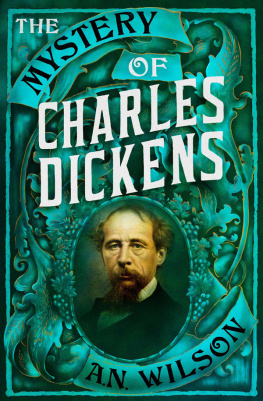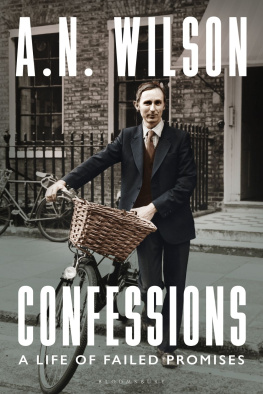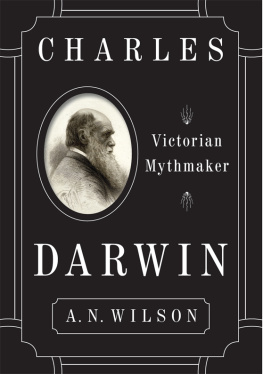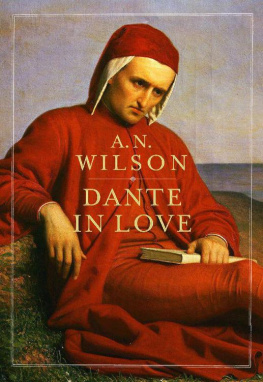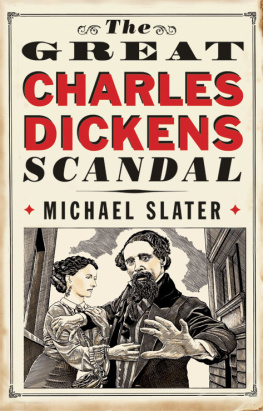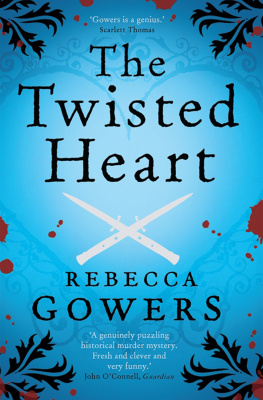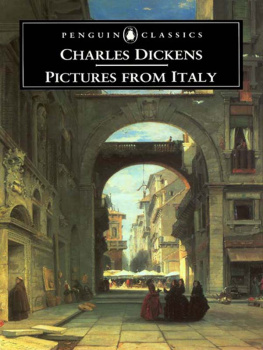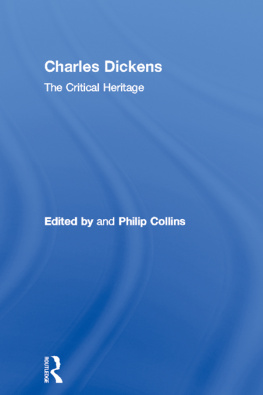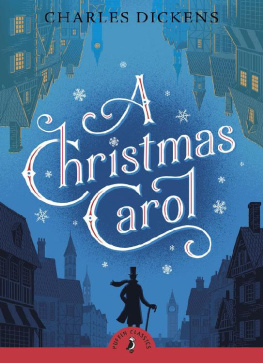A. N. Wilson - The Mystery of Charles Dickens
Here you can read online A. N. Wilson - The Mystery of Charles Dickens full text of the book (entire story) in english for free. Download pdf and epub, get meaning, cover and reviews about this ebook. year: 2020, publisher: Atlantic Books, genre: Detective and thriller. Description of the work, (preface) as well as reviews are available. Best literature library LitArk.com created for fans of good reading and offers a wide selection of genres:
Romance novel
Science fiction
Adventure
Detective
Science
History
Home and family
Prose
Art
Politics
Computer
Non-fiction
Religion
Business
Children
Humor
Choose a favorite category and find really read worthwhile books. Enjoy immersion in the world of imagination, feel the emotions of the characters or learn something new for yourself, make an fascinating discovery.
- Book:The Mystery of Charles Dickens
- Author:
- Publisher:Atlantic Books
- Genre:
- Year:2020
- Rating:4 / 5
- Favourites:Add to favourites
- Your mark:
- 80
- 1
- 2
- 3
- 4
- 5
The Mystery of Charles Dickens: summary, description and annotation
We offer to read an annotation, description, summary or preface (depends on what the author of the book "The Mystery of Charles Dickens" wrote himself). If you haven't found the necessary information about the book — write in the comments, we will try to find it.
The Mystery of Charles Dickens — read online for free the complete book (whole text) full work
Below is the text of the book, divided by pages. System saving the place of the last page read, allows you to conveniently read the book "The Mystery of Charles Dickens" online for free, without having to search again every time where you left off. Put a bookmark, and you can go to the page where you finished reading at any time.
Font size:
Interval:
Bookmark:

The Mystery
of
Charles Dickens
FICTION
The Sweets of Pimlico
Unguarded Hours
Kindly Light
The Healing Art
Who Was Oswald Fish?
Wise Virgin
Scandal: Or Priscillas Kindness
Gentlemen in England
Love Unknown
Stray
The Vicar of Sorrows
Dream Children
Incline Our Hearts
A Bottle in the Smoke
Daughters of Albion
Hearing Voices
A Watch in the Night
My Name Is Legion
A Jealous Ghost
Winnie and Wolf
The Potters Hand
Resolution
Aftershocks
NON-FICTION
The Laird of Abbotsford
A Life of John Milton
Hilaire Belloc
Tolstoy
Penfriends from Porlock
Eminent Victorians
C. S. Lewis
Paul
Gods Funeral
The Victorians
Iris Murdoch As I Knew Her
London: A Short History
After the Victorians
Betjeman: A Life
Our Times
Dante in Love
The Elizabethans
Hitler
Victoria
Charles Darwin: Victorian Mythmaker
Prince Albert
etc.

First published in hardback in Great Britain in 2020 by Atlantic Books, an imprint of Atlantic Books Ltd.
Copyright A. N. Wilson, 2020
The moral right of A. N. Wilson to be identified as the author of this work has been asserted by him in accordance with the Copyright, Designs and Patents Act of 1988.
All rights reserved. No part of this publication may be reproduced, stored in a retrieval system, or transmitted in any form or by any means, electronic, mechanical, photocopying, recording, or otherwise, without the prior permission of both the copyright owner and the above publisher of this book.
Every effort has been made to trace or contact all copyright-holders. The publishers will be pleased to make good any omissions or rectify any mistakes brought to their attention at the earliest opportunity.
10 9 8 7 6 5 4 3 2 1
A CIP catalogue record for this book is available from the British Library.
Illustration credits: Illustration by Hablot K. Browne, Phiz, from The Old Curiosity Shop, 1841 (Culture Club/Getty Images)
Hardback ISBN: 978 1 78649 791 8
E-book ISBN: 978 1 78649 792 5
Printed in Great Britain
Atlantic Books
An imprint of Atlantic Books Ltd
Ormond House
2627 Boswell Street London WC1N 3JZ
www.atlantic-books.co.uk
For Amicia and Richard

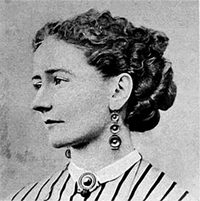

the hyper-energetic, over-sexed, tormented, exultant, hilarious, despondent Charles Dickens had written to a friend, thirteen years before he actually died.
Dickens was good at dying. If you want a good death, go to the novels of Dickens. Watch the dwarfish swindler Mr Quilp on the run from the police, slithering into the muddy Thames. Watch Mr Merdle, the financier who cuts his own throat with a penknife in a Turkish bath. Look upwards to the rooftops and see the murderer Bill Sikes trying to make his escape from arrest by clambering over the tiles, missing his footing and hanging himself by accident. See, too, his dog, Bulls Eye, leap to his masters shoulder and fall, dashing his brains out on the stones below. There had been the poignant deaths little Jo the Crossing Sweeper trying to repeat the, to him unknown, Lords Prayer; and heroic deaths none more so than Sydney Carton, voluntarily approaching the guillotine and doing a far, far better thing than he had ever done before.
Sometimes Dickens may be said to have overdone the sob-stuff. Oscar Wilde quipped that it would take a heart of stone to read of the death of Little Nell without laughing. But the thing is, this isnt true: for a start, in The Old Curiosity Shop the child is already dead when we find her lying in the schoolmasters house; her death happens offstage; and as the thousands who gathered in New The public reaction to Little Nells fate had revealed to Dickens that he possessed what no author in history had ever possessed to such a degree: a mesmeric power. Literature had never before, in the West, attracted the sort of crowds that had hitherto only been drawn to the revivalist meetings of John Wesley.
The poignant deaths were not the only ones at which he was adept, of course. There were grotesque deaths, such as the tall lady eating sandwiches who was decapitated by an unnoticed archway in Rochester; improbable deaths, such as Krooks by spontaneous combustion; deaths by judicial execution and by mob violence; deaths by accident; deaths, like that of Edwin Drood, in his final novel, unexplained, mysterious. And there is what must be one of the most wonderful deaths in literature rivalled only by that of Falstaff as described by Mistress Quickly the death of Barkis: and it being low water, he went out with the tide. [DC 30]
But now it was June 1870, and although he was only fifty-eight years old, Dickens was exhausted. His face was ravaged; it could have been the face of an octogenarian. He had been heavily dosing himself with laudanum (a mixture of opium and alcohol) for many months and was opium-dependent. The novel that he was in the middle of writing, The Mystery of Edwin Drood, begins with an opium-induced trance. It is the story of a man who drifts into different states of consciousness through the influence of the drug. It is the story of a divided self, a man who is a different person when leading his secret lives lives hidden from the respectable cathedral town of Cloisterham, a fictionalized version of the same cathedral town, Rochester, that was a brisk hours walk from Dickenss home at Gads Hill in Kent. For, ill as he was, Dickens, who all his life was a restless and prodigiously energetic walker, still forced his body into vigorous exercise, on those days when he was capable of it. Now, his heart was weak, his breath was uncertain. He had crammed many lifetimes into one the lifetime of the most celebrated novelist in the world; the lifetime of a full-time journalist; the lifetime of an actor, and of a public reader; the lifetime of a philanthropist; the lifetime of a family man and of a secret lover. Now, having described and enacted so many deaths, he was going to do it for real.
Enacted, yes, for as well as his unrivalled presence in print, his fame as a writer, he never lost his desire to perform on the public stage. I want to write, in this chapter, about Dickenss debt to the theatre, to burlesque, to pantomime, to the harlequinade, because it is central to his way of functioning as one of the greatest artistic geniuses of the nineteenth century. But although we know so little about the actress Nelly Ternan, she was part of this, obviously she was. So I also want to start with Nelly, and the theatre, before we go back and explore the other mysteries of Charles Dickens the mystery of his childhood and his past; the mystery of his appalling cruelty to a harmless wife who bore him ten children; the mystery of his passionate, sincere and burning charity, his fury at injustice; the mystery of his relationship with the public, in the first era when there was a truly enormous public with whom to have such a relationship; In his infancy, Jane Austen was still at work, and Sir Walter Scott. His contemporaries included the Bront sisters, George Eliot, Anthony Trollope, William Makepeace Thackeray. Dickens was fundamentally different from any one of them, for reasons that we shall explore. Although we call all their works novels, he was actually writing books that were quite different in kind from theirs, and it was perhaps only when one of his greatest admirers abroad, Fyodor Mikhailovich Dostoevsky, began to write, partially in homage to Dickens, that the world started to see the kind of novelist he had been. His stories were prodigiously popular, and continue to be so. Unlike so much prose fiction, however, they work on many levels, and it would be as true to describe them as great visionary poems, as fairy tales, as pantomimes, as it would be to talk of them as novels in the prosaic tradition in which, say, Trollope excelled.
Font size:
Interval:
Bookmark:
Similar books «The Mystery of Charles Dickens»
Look at similar books to The Mystery of Charles Dickens. We have selected literature similar in name and meaning in the hope of providing readers with more options to find new, interesting, not yet read works.
Discussion, reviews of the book The Mystery of Charles Dickens and just readers' own opinions. Leave your comments, write what you think about the work, its meaning or the main characters. Specify what exactly you liked and what you didn't like, and why you think so.

